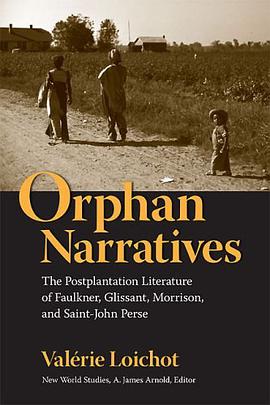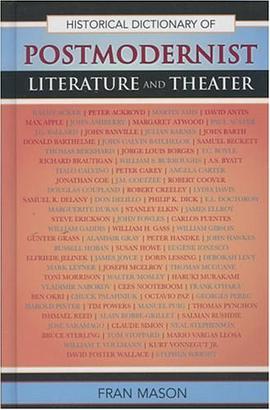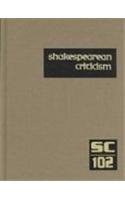

Description:
Much has been written on allegory as a cognitive tool―a rhetorical device that is more a philosophical forma mentis than sheer literary form. The writings of the classical thinkers, the work of Isidore of Seville, and the texts of Renaissance humanists tacitly acknowledge the rhetorical, argumentative impact of etymology. Yet appreciation for the practice of etymology remains largely uncharted in modern works. When recognized, it is invariably with reservations about its scientific or cognitive worth. Isidore of Seville's etymologies, for instance, continue either to be cited as curious specimens of scientific antiquarianism or altogether dismissed as semantically and phonologically inaccurate.
In Forgotten Paths, Davide Del Bello draws on the insights of Giambattista Vico and examines exemplary texts from classical, medieval, and Renaissance culture with the intent to trace the links between etymological and allegorical ways of knowing, writing, thinking, and arguing. Del Bello brings into sharper focus the hazy contours of etymology with respect to allegory; assesses the viability of classical and medieval etymologizing as a dynamic cognitive tool; and appraises the persistence of an etymologico-allegorical modus operandi from the late Enlightenment to postmodernism.
Davide Del Bello is assistant professor of English at Bergamo University in Italy. He received his Ph.D. in English and rhetoric from Northern Illinois University.
PRAISE FOR THE BOOK
"A very interesting and unusual book. It is gratifying to see this classical and humanist sense of etymology as an integral part of thought brought back to life."―Thora Ilin Bayer, RosaMary Professor of Liberal Arts and Associate Professor of Philosophy, Xavier University
"This elegantly written, brilliantly conceived book provides a richly expansive definition of etymology and its relation to allegory. . . . In eight carefully crafted chapters, Del Bello relentlessly keeps his eye on the object: the integration of etymology and allegory. . . . It is difficult to exaggerate the value of this book for students of literature, rhetoric, or the history of thought. Del Bello is an original thinker on linguistic matters and a writer of considerable ability. Forgotten Paths is both a 'memorable' book and an enduring, insightful analysis of the problematic relationship that has always existed between language and thought." ― Cithara
"This book is really for aficionados of etymology-based intellectual inquiry, from pre-modern to post-modern. . . . This book presents its material with admirable eloquence and imagination. . . . "[T]his monograph does great service to the history of etymology by recasting it as a linguistic variant of allegory progressively transformed by science, and will be prized by many philosophers of language for undertaking a challenging intellectual journey through a diverse range of authors who are rarely read together." ― Dunstan Lowe, Bryn Mawr Reviews
Students of poetry will find this a most fascinating as well as instructive book, while professional literary scholars will recognize its central assumption that etymology includes an expansive field of issues regarding word origins. . . . Del Bello wants to rescue from oblivion a once lively and still powerfully important aspect of language in its figurative dimensions, and this makes for an invigorating study. . . .I am delighted to have read and learned from it. . . . [W]henever Forgotten Paths touches a question of theory or some particular case in point, it yields revealing insight, and hence the book as a whole makes a genuine contribution to the field of hermeneutics."―-Angus Fletcher, Modern Philology
具體描述
讀後感
評分
評分
評分
評分
用戶評價
這本百把頁的書不長,但是確實縱橫捭闔、高度濃縮,經過長期挑燈鏖戰,本農今天纔讀完。所謂"被遺忘的路途",指的是相比於現代語言學中“科學”的語源學方法的古代和中世紀學者們“非科學”的“野路子”——寓言式的語言學。在索緒爾之後,現代語言學在人類學、考古學、邏輯學、密碼學基礎很大程度是“語係”式分門彆類的格物緻知方式,而將古代和中世紀的寓言論視為“非科學”的,但同時也將語言單元的共時性聯係相割裂,形成瞭作者所說的“原子化割裂式研究方法”(atomology)。本農讀過塞維利亞大主教Isidore令人嘆為觀止的“百科全書式”的大部頭《詞源學》,對其內容和寓言、隱喻式闡釋方式印象深刻。從柏拉圖的《剋拉底魯斯篇》到德裏達,文中涉及大量學者思想與書著,不是一本易啃的書,難以在有限篇幅內一一評點。
评分這本百把頁的書不長,但是確實縱橫捭闔、高度濃縮,經過長期挑燈鏖戰,本農今天纔讀完。所謂"被遺忘的路途",指的是相比於現代語言學中“科學”的語源學方法的古代和中世紀學者們“非科學”的“野路子”——寓言式的語言學。在索緒爾之後,現代語言學在人類學、考古學、邏輯學、密碼學基礎很大程度是“語係”式分門彆類的格物緻知方式,而將古代和中世紀的寓言論視為“非科學”的,但同時也將語言單元的共時性聯係相割裂,形成瞭作者所說的“原子化割裂式研究方法”(atomology)。本農讀過塞維利亞大主教Isidore令人嘆為觀止的“百科全書式”的大部頭《詞源學》,對其內容和寓言、隱喻式闡釋方式印象深刻。從柏拉圖的《剋拉底魯斯篇》到德裏達,文中涉及大量學者思想與書著,不是一本易啃的書,難以在有限篇幅內一一評點。
评分這本百把頁的書不長,但是確實縱橫捭闔、高度濃縮,經過長期挑燈鏖戰,本農今天纔讀完。所謂"被遺忘的路途",指的是相比於現代語言學中“科學”的語源學方法的古代和中世紀學者們“非科學”的“野路子”——寓言式的語言學。在索緒爾之後,現代語言學在人類學、考古學、邏輯學、密碼學基礎很大程度是“語係”式分門彆類的格物緻知方式,而將古代和中世紀的寓言論視為“非科學”的,但同時也將語言單元的共時性聯係相割裂,形成瞭作者所說的“原子化割裂式研究方法”(atomology)。本農讀過塞維利亞大主教Isidore令人嘆為觀止的“百科全書式”的大部頭《詞源學》,對其內容和寓言、隱喻式闡釋方式印象深刻。從柏拉圖的《剋拉底魯斯篇》到德裏達,文中涉及大量學者思想與書著,不是一本易啃的書,難以在有限篇幅內一一評點。
评分這本百把頁的書不長,但是確實縱橫捭闔、高度濃縮,經過長期挑燈鏖戰,本農今天纔讀完。所謂"被遺忘的路途",指的是相比於現代語言學中“科學”的語源學方法的古代和中世紀學者們“非科學”的“野路子”——寓言式的語言學。在索緒爾之後,現代語言學在人類學、考古學、邏輯學、密碼學基礎很大程度是“語係”式分門彆類的格物緻知方式,而將古代和中世紀的寓言論視為“非科學”的,但同時也將語言單元的共時性聯係相割裂,形成瞭作者所說的“原子化割裂式研究方法”(atomology)。本農讀過塞維利亞大主教Isidore令人嘆為觀止的“百科全書式”的大部頭《詞源學》,對其內容和寓言、隱喻式闡釋方式印象深刻。從柏拉圖的《剋拉底魯斯篇》到德裏達,文中涉及大量學者思想與書著,不是一本易啃的書,難以在有限篇幅內一一評點。
评分這本百把頁的書不長,但是確實縱橫捭闔、高度濃縮,經過長期挑燈鏖戰,本農今天纔讀完。所謂"被遺忘的路途",指的是相比於現代語言學中“科學”的語源學方法的古代和中世紀學者們“非科學”的“野路子”——寓言式的語言學。在索緒爾之後,現代語言學在人類學、考古學、邏輯學、密碼學基礎很大程度是“語係”式分門彆類的格物緻知方式,而將古代和中世紀的寓言論視為“非科學”的,但同時也將語言單元的共時性聯係相割裂,形成瞭作者所說的“原子化割裂式研究方法”(atomology)。本農讀過塞維利亞大主教Isidore令人嘆為觀止的“百科全書式”的大部頭《詞源學》,對其內容和寓言、隱喻式闡釋方式印象深刻。從柏拉圖的《剋拉底魯斯篇》到德裏達,文中涉及大量學者思想與書著,不是一本易啃的書,難以在有限篇幅內一一評點。
相關圖書
本站所有內容均為互聯網搜索引擎提供的公開搜索信息,本站不存儲任何數據與內容,任何內容與數據均與本站無關,如有需要請聯繫相關搜索引擎包括但不限於百度,google,bing,sogou 等
© 2025 qciss.net All Rights Reserved. 小哈圖書下載中心 版权所有




















